#Holland Greco
Explore tagged Tumblr posts
Text
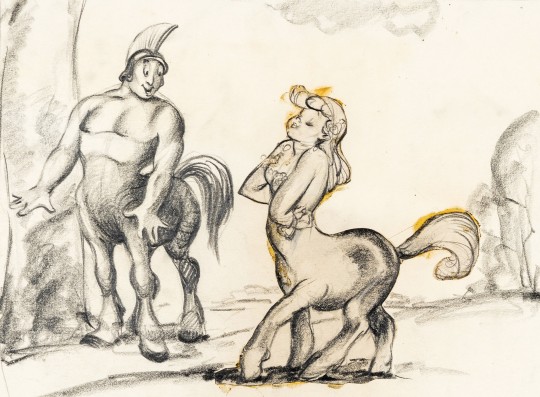
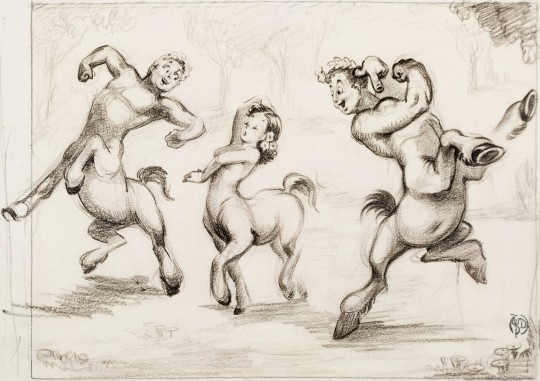
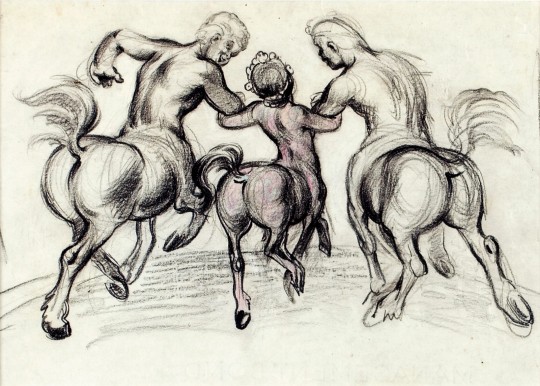
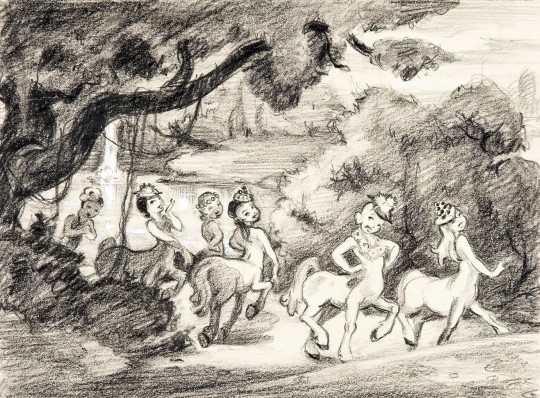
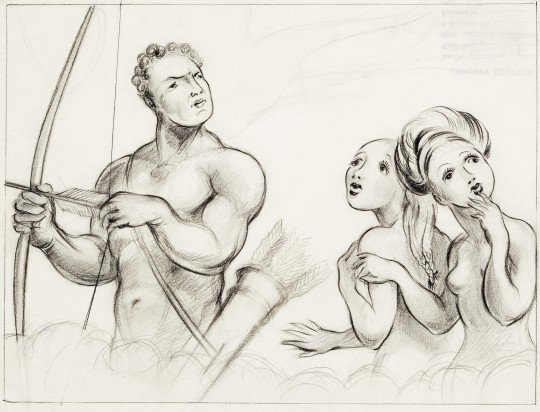
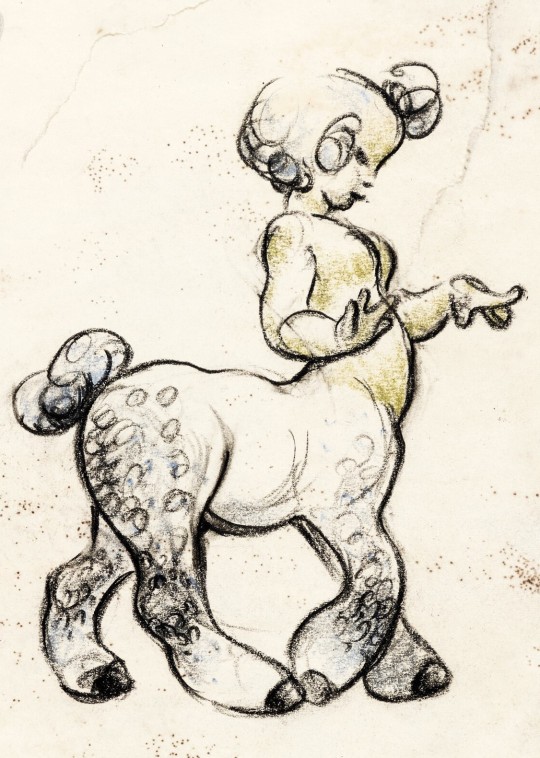
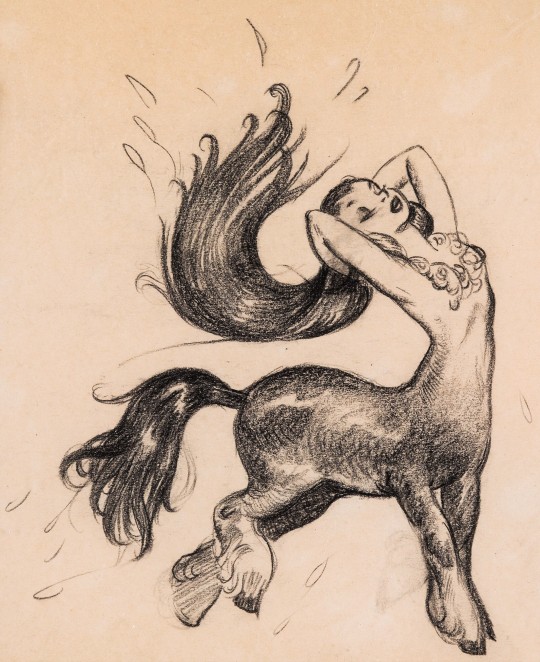
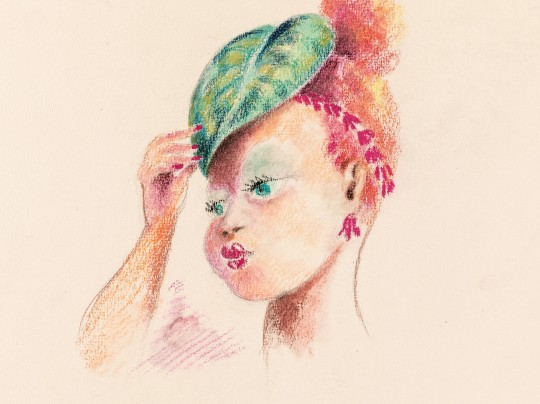
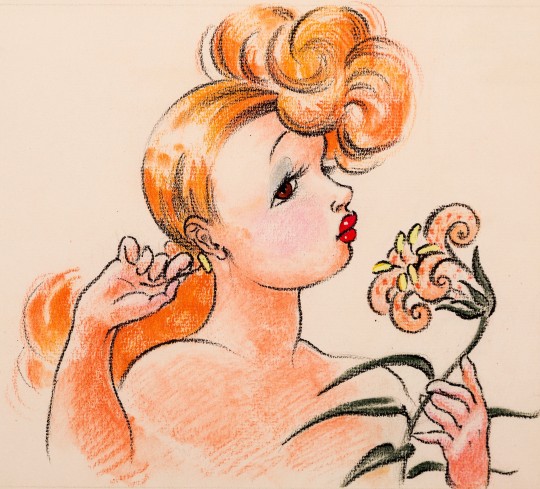
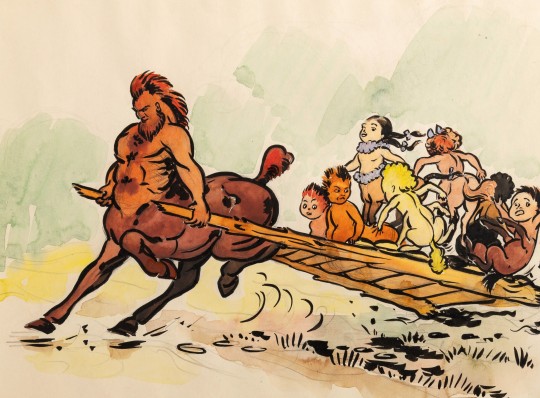
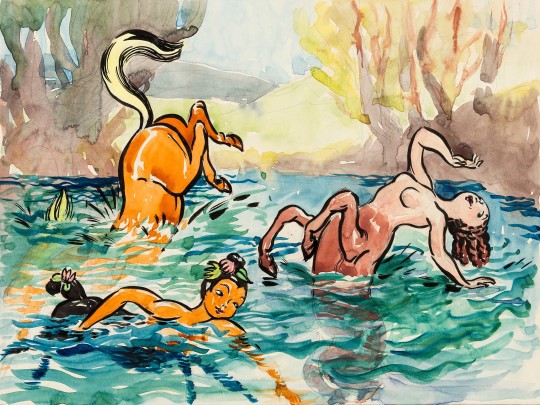
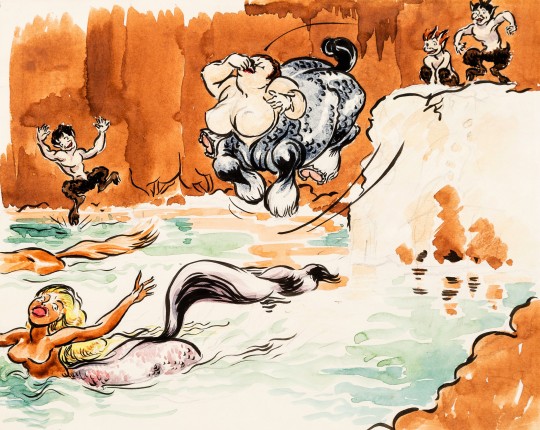
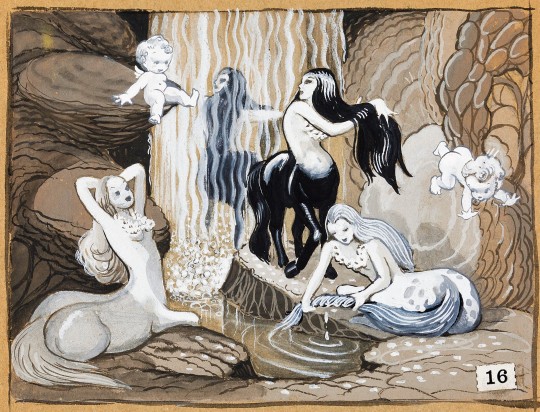
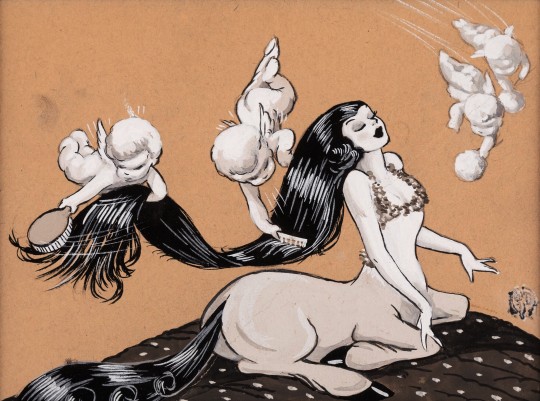
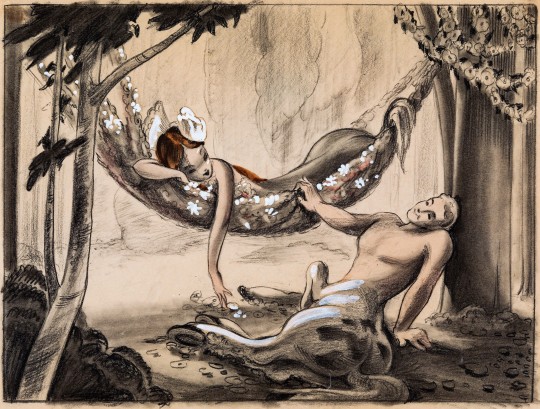
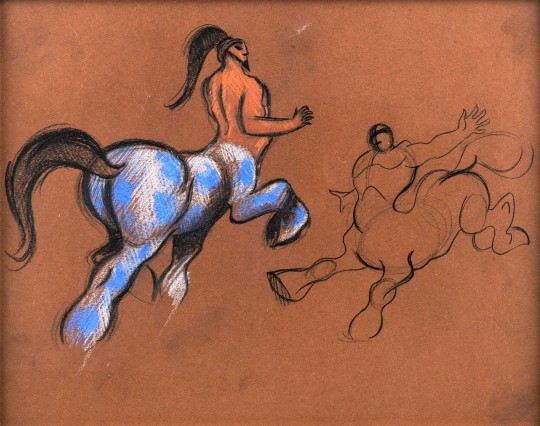
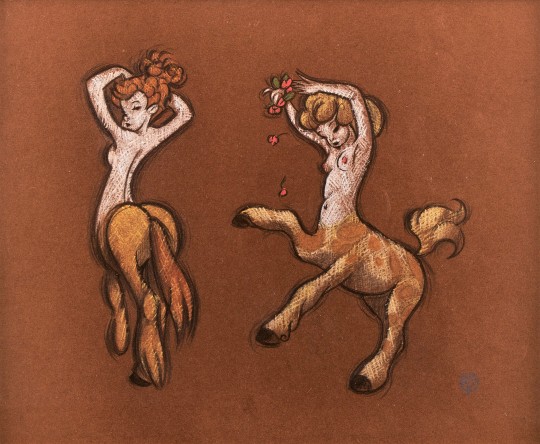

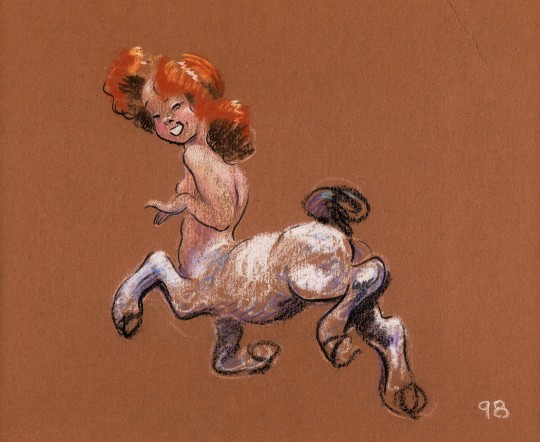
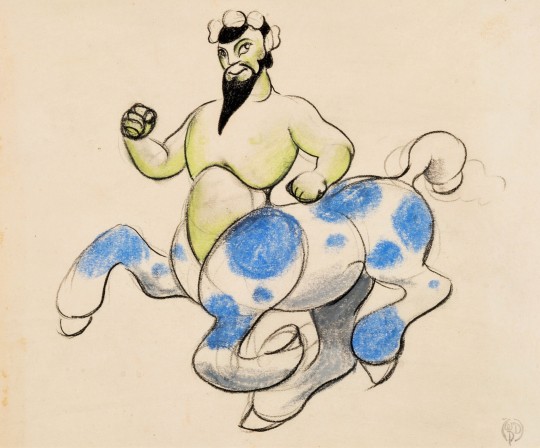
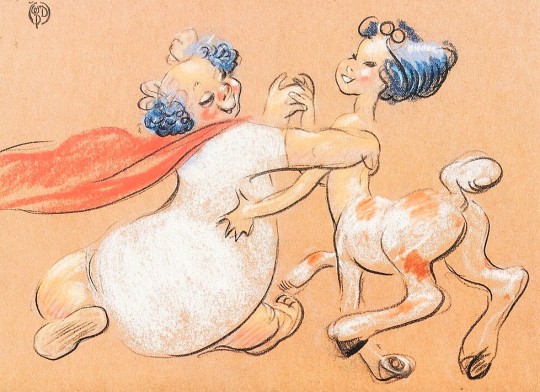
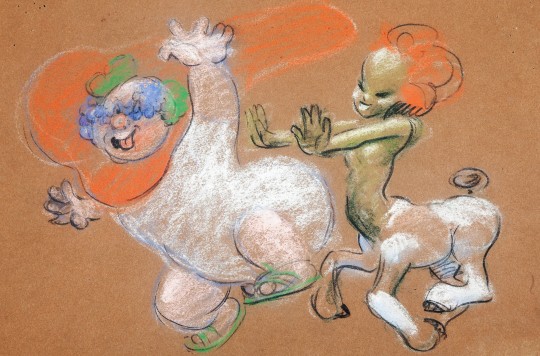
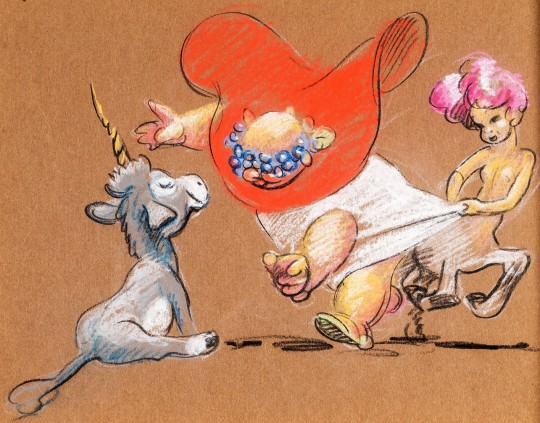
Fantasia: The Pastoral Symphony - Concept art by James Bodrero, Fred Moore and Sylvia Holland (c.1939)
#fantasia#james bodrero#fred moore#sylvia holland#disney concept art#walt disney#fantasy art#the pastoral symphony#centaurettes#centaurs#bacchus#greco-roman mythology#disney animated features#40s animation#40s movies#1939#1940#1940s
703 notes
·
View notes
Text
United Universes Special Concert 2024! Halloween! Run Get Away!!
Just then a Pink dog came running on the stage!!! "Everyone this is emergency!! We need to get away from them all!!!! Start the music!!!!!" the stage then was like running away!!!!! As then she started singing and Scooby Doo villains appeared reaching out to the crowd!!!


Pinky Dinky- "Woah, get away, get away, yeah!!!!

Woah, get away, get away, yeah!!!!

Woah, get away, get away, yeah!!!!

Woah, get away, get away, yeah!!!!

What can you do When the spooky goons are coming for you!!!

If they catch you, then you know you're through You keep on running cos you're out of time.

Hey, can't you see That there's creepy creatures coming for me!

I'm so scared that I can't even scream So I'm running cause I'm out of time.

Woah, get away, get away, yeah!!!!

Woah, get away, get away, yeah!!!!

Woah, get away, get away, yeah!!!!

Woah, get away, get away, yeah!!!!

Where can you hide And be sure you're safe and sound for the night?

I can see you shaking, shiver with fright Keep on running cause you're out of time.

I gotta go Or it's curtains, it's the end of the show

If they catch me, then that's all she wrote They're right behind me now

I know there's something coming So I gotta keep on running, uh huh

Run, get away yeah! Run, get away yeah!

Woah, get away, get away, yeah!

Woah, get away, get away, yeah!

Woah, get away, get away, yeah!

Woah, get away, get away, yeah!

Run, get away yeah!

Run, get away yeah!

Run, get away yeah!

Woah, get away, get away, yeah.!!!


youtube
The crowd was going nuts as this was honoring Scooby Doo through and Through!!!!! :)
@thelittlemermaidfan1989
@mellowwpopper
@teen-lyoko-fan7777
@goldmudder
@andy-squirrel-and-friends
@askdj-timelord2
@keirastarlightdraconequus
(Credits to Scooby Doo, Holland Greco, and creators of images and videos)!
3 notes
·
View notes
Note
Actually enslaving people is wrong because it’s a fucked up thing to do, and for centuries Christian’s didn’t get the memo on that one so realizing it’s a fucked up and horrible thing to do doesn’t come from ‘Christian ethics’
Also your blog is a complete eyesore
Slavery is f*cked up? That would have been news to the Greco-Roman world, many African societies throughout history, the Chinese well into the 20th century, the Ottoman Empire and most other Muslim societies, India in many periods of its history, the Norse, many Native American peoples and quite a few people today.
Slavery is so abhorrent to us that we don't realise that the correct question isn't "why does a given society have slavery"? Having slavery is the default for societies. Rather, we should ask why we don't have it.
Christianity, in large part.
Gregory of Nyssa, 4th century bishop and theologian, was the first known person to propose the abolition of slavery. While the other Church Fathers saw that as a pipe dream due to how pervasive it was, they almost all thought that slavery was a symptom of a fallen world and would disappear in the New Creation (and it largely did in the Byzantine Empire, the heartland of eastern Christianity). Whereas to the Greeks and Romans it was just an inherent and indisputable fact of life.
Over in the West, the Norse slave trade was primarily opposed by Christian clergy, and mainly on the religious grounds that it was immoral to treat fellow Christians like this (keep in mind that in their ideal world, everyone would be Christian). When slavery was revived by the Spanish, it was consistently opposed by a Dominican friar, Bartolomé de las Casas, using arguments based on the image of God and the works of Thomas Aquinas. When the Spanish crown agreed to a debate on slavery between him and fellow clergyman Juan Ginés de Sepúlveda, Casas stuck to his arguments from the Christian tradition and Sepúlveda primarily argued from Aristotle.
With the transatlantic slave trade most people are familiar with, the opposition primarily came from Quakers and Evangelicals using arguments based on the image of God in all people. And they eventually succeeded, and Britain hence used its naval muscle to suppress slavery in the colonies and coerce the Ottomans into abolishing it; the sense this created of an Islamic institution being uprooted by foreign infidels led to the rise of Islamic fundamentalism (as such, it's hardly surprising that Islamic State have reinstituted it).
Whenever I have not provided a link, it came from one of the following three books, chiefly the first of them - Dominion: The Making of the Western Mind by Tom Holland (the classicist, not the actor), A Brief History of Life in the Middle Ages by Martyn Whittock and The Bright Ages: A New History of Medieval Europe by David M. Perry and Matthew Gabriele.
I agree my blog could probably do with more of a visual component. If anyone has any suggestions please let me know.
#answered asks#history#christianity#seriously#every adult should read “dominion”#regardless of what you believe#this book will make you think
11 notes
·
View notes
Text
昭和のCMでMusic Videoを制作してみました。👩🏽🦱♬.*゚
2 notes
·
View notes
Text
Finally Friday | Episode #015 | Electronic, Dance, & Hip-Hop DJ Mix
youtube
The days are getting longer, and this month’s Finally Friday Mix is here to soundtrack your fresh start. Whether you’re shaking off the winter chill or gearing up for festival season, this mix blends house, hip-hop, and electronic beats to keep you moving.
Press play and breathe it in — this mix will make you feel like you’re in Miami during Miami Music Week, dancing under a palm tree.
Like, comment & subscribe to become a member of the Finally Friday Gang! Watch the visualizers for all my mixes on YouTube or listen on SoundCloud.
Tracklist: 1. Kendrick Lamar vs. Ciara & Petey Pablo - squabble up vs. Goodies (BLACCMASS Mashup) 2. Sade - Nothing Can Come Between Us (Never Dull Edit) 3. Luther Vandross & Janet Jackson - The Best Things In Life Are Free (Sgt Slick's Discotizer ReCut) 4. Cassius - The Sound Of Violence (BLR & Matt Sassari Remix) 5. Nelly Furtado - Say It Right (Tiësto Remix) 6. Goodboys & KREAM - Paradise 7. Curbi - I'm Alive 8. Drake - Nokia (Jaden Bojsen Remix) 9. Mau P - The Less I Know The Better 10. Tame Impala - Why Won't You Make Up Your Mind? (Ship Wrek Edit) 11. Central Cee & 21 Savage - GDP (Sammy Porter Remix) w/ GDP (DROPWIZZ Remix) 12. GENESI & MEDUZA - Freak (feat. Aya Anne) 13. D.O.D. - Wrap Yourself Around Me (feat. NORTH) 14. Fetty Wap - Trap Queen (CHALANT & CARROLL Remix) 15. Anyma - Hypnotized (feat. Ellie Goulding) (John Summit Remix) 16. Justice vs. Simian - We Are Your Friends (Alex Defyre Remix) 17. Jackie Hollander & Lizzy Land - I Look Good 18. deadmau5 & Kaskade - I Remember (Tommy Phillips Remix) 19. 1TK & DR. GRECO - REECES PIECES 20. Starjunk 95 - Beat Keep Rockin'
#music#finally friday#finally friday gang#edm#electronic music#house#hip hop#kendrick lamar#drake#tiesto#luther vandross#janet jackson#ciara#mau p#deadmau5#anyma#john summit#tame impala#Youtube#SoundCloud
0 notes
Audio
Funk LeBlanc - Lovestruck feat. Holland Greco (2018) [Nu Disco]
10 notes
·
View notes
Audio
Real Love (feat. Holland Greco) por Funk LeBlanc, Holland Greco publicado en el álbum Real Love (feat. Holland Greco).
3 notes
·
View notes
Text

1 note
·
View note
Note
Know any good sources on Celtic (specifically Gaulish practices)? I know it’s not your area, but you seem like someone who might know some people who dabble in that sort of stuff. The area I live in has some celtic archeological sites, but sadly not much is known about the local religion or culture. I am trying to put together a Romano-Celtic hearth cult, but it’s difficult finding practices and deities that feel right.
Gaul is a larger Celtic area of Western Europe (modern-day France and parts of modern-day Belgium, Germany, and Northern Italy). I say this because the Celts, when invaded by Rome, took in a lot of Roman religion including Hellenic and (rarely) Kemetic beliefs as well. When the Celts did this, so did the Gauls.
If it helps at all, the specifics you're looking into is called Gallo-Roman, which is part of the larger Romano-Celtic area.
This selective acculturation manifested in several ways. One of the main ways we see this is with the melding of Greco-Roman deities with Gaulish (Celtic) deities. Gaulish epithets for Roman gods (Jupiter Poeninus) and Roman epithets for Gaulish gods (Lenus Mars). Roman gods were given Gaulish god partners (Mercury and Rosmerta & Apollo and Sirona). Towards the east of the Gauls, many mysteries were formed, including one for the Greek hero Orpheus, the Iranian (or Persian) god Mithras, and the Egyptian goddess Isis. In other words, a whole lot of syncretism.
When it came to the Gauls (and the Celts overall) a main part of their belief system was the heavy use of animal imagery. More specifically, zoomorphic deities. However, we see a lot more human-looking representations of the gods because the Romans (and Greeks) weren't too keen on the idea (see Greco-Egyptian).
As for specifically Gallo-Roman hearth religious beliefs, the Lares (Lar singular) is a good place to start. They're the equivalent of Agathos Daimon in Greek religion (Hellenism). Essentially, they're personal household deities that are connected to the hearth.
A majority of the information we have about the Gaelic culture and the eventual melding of the Gallo-Roman culture stems from two sources: artifacts and Julius Ceasar, who wrote all about in what we now call the "Commentarii de Bello Gallico". The gods that he mentions the Gauls worship (like Jupiter, Mercury, Mars, and Minerva) aren't really the Roman gods that the Gauls are worshipping at that time but rather the closest thing Ceasar can connect. For example, Caesar may say that the Gauls worshipped Mars, when in reality they were worshipping Lenus, a healing god that quickly became associated with Mars because of Caesar and the Roman Empire. However, not all of them were caught. Gobannus is the most well-known example we have, with him being the equivalent to the Roman god Vulcan or the Greek god Hephaestus and yet Caesar makes no comment on the Gaulish god.
One other thing, the specific time we are taking a look at was prior to the overtaking by the Anglos, Saxons, and Jutes (aka pre-Anglo-Saxon times). Because of this, Germanic (Norse) gods weren't known to these people yet. Odin, Thor, and Freyja were unknown to them at this point in time.
Other than that, the last thing I can give to you are articles and books that I stumbled upon that may pique your interest. I do recommend a couple of Wikipedia links, but just know that I recommend using Wikipedia as a jumping-off point. Hope this helps! :^)
Becoming Roman: the origins of provincial civilization in Gaul -- Greg Woolf https://archive.org/details/becomingromanori0000wool
The gods of the Celts -- Miranda Green https://archive.org/details/godsofceltsar00mira
Gallo-Roman Religious Sculptures -- A.N. Newell https://www.jstor.org/stable/640758
Fifth-Century Gaul: A Crisis of Identity? -- John Drinkwater & Elton Hugh https://www.loc.gov/catdir/samples/cam031/91018375.pdf
Caesar's Commentaries on the Gallic War: literally translated -- Frederick Holland Dewey, A.B. https://archive.org/details/caesarscommentar07caes
Category:Gaulish gods -- Wikipedia https://en.wikipedia.org/wiki/Category:Gaulish_gods
Category:Gaulish goddesses -- Wikipedia https://en.wikipedia.org/wiki/Category:Gaulish_goddesses
sources: https://bmcr.brynmawr.edu/1999/1999.10.34/ http://www.deomercurio.be/en/dii.html https://www.britannica.com/topic/Celtic-religion/The-Celtic-gods https://en.wikipedia.org/wiki/Lares https://www.britannica.com/topic/Lar-Roman-deities https://en.wikipedia.org/wiki/Gallo-Roman_culture https://en.wikipedia.org/wiki/Gallo-Roman_religion
#ask#witch#witchcraft#witchblr#pagan#celtic#gaulish#roman#celtic deities#celtic pantheon#gaulish deities#gaulish pantheon#roman pantheon#roman gods#ancient rome#gallo-roman#romano-britain#romano-celtic#hearth
42 notes
·
View notes
Photo
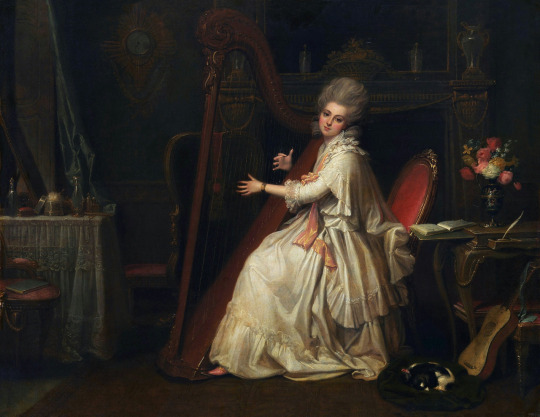
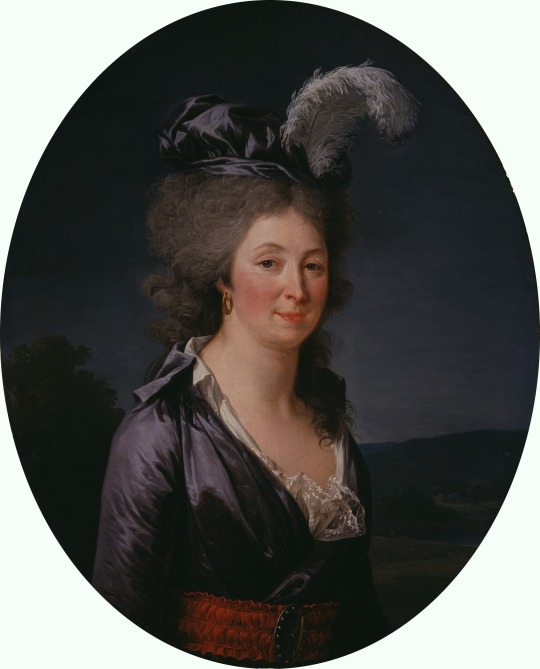
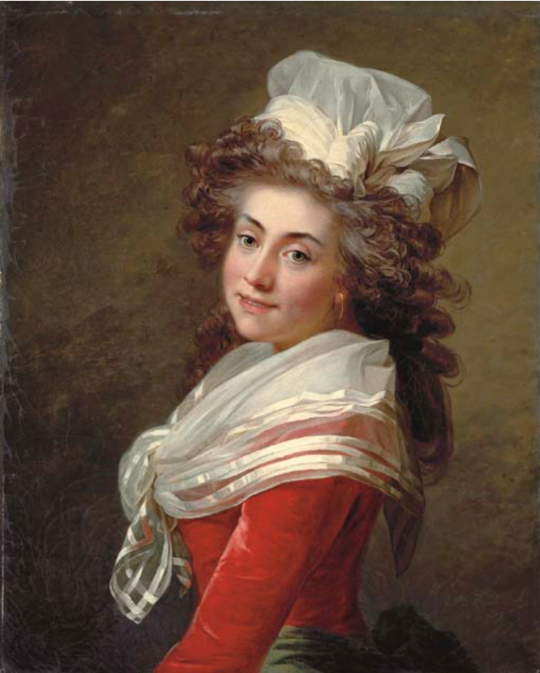
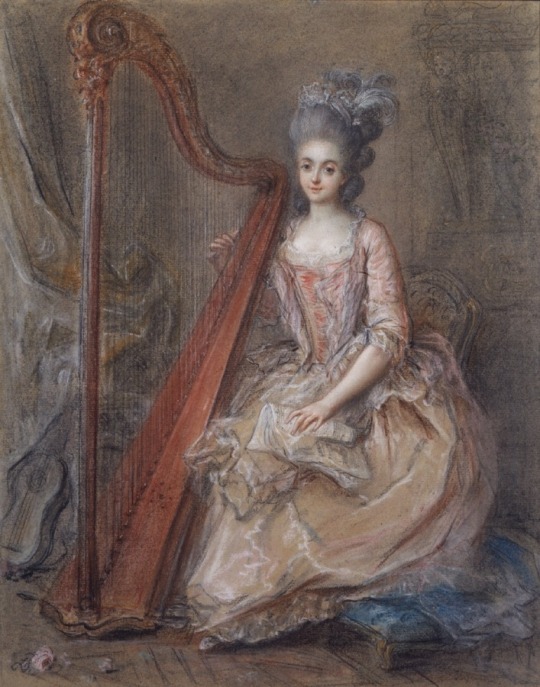
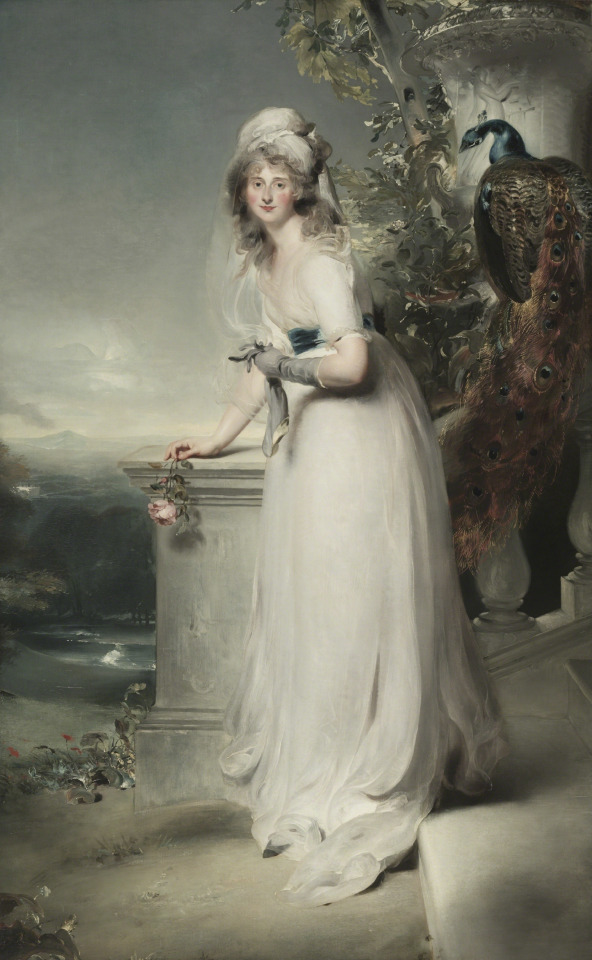
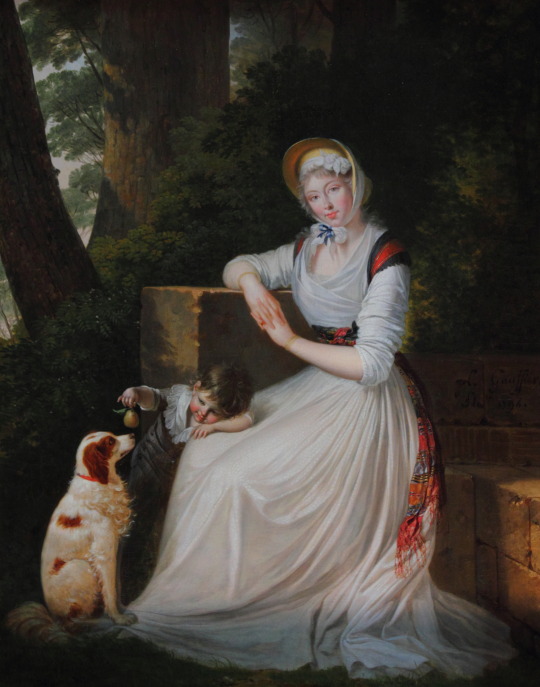
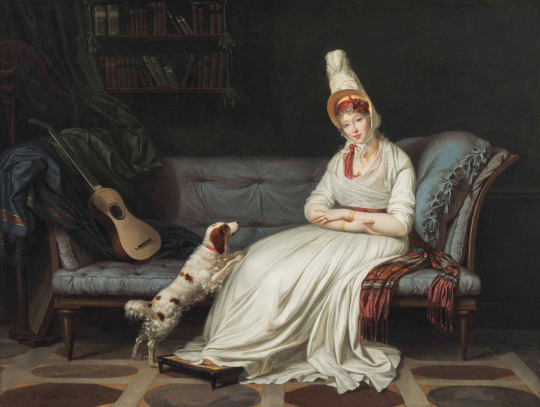
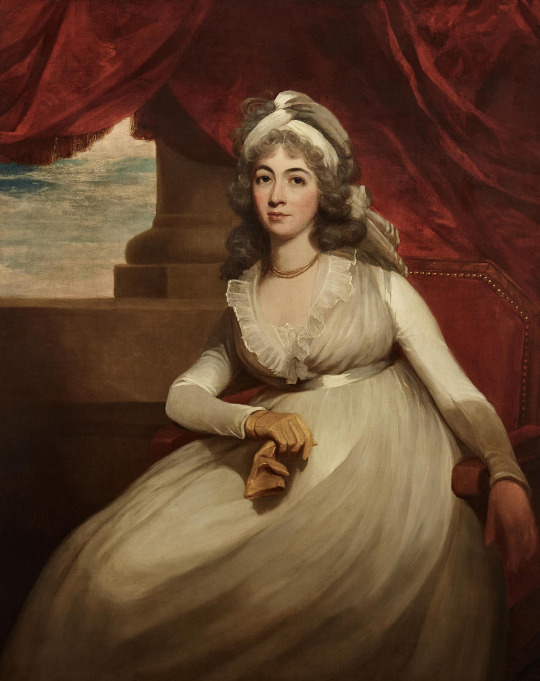
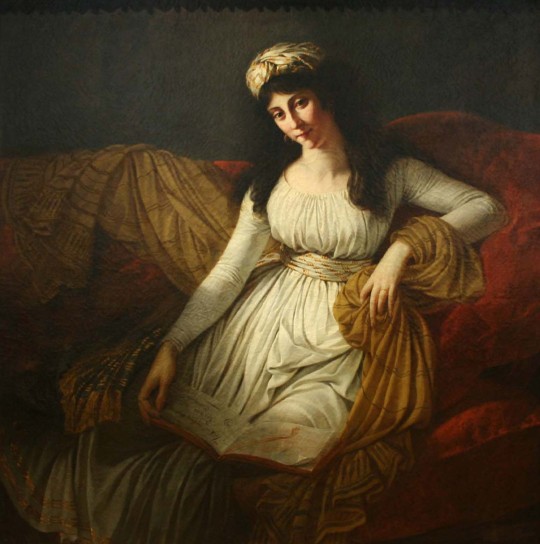
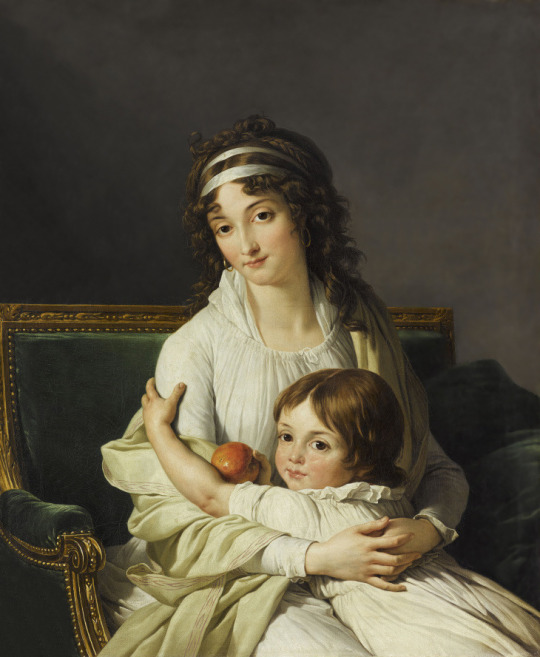
1790s dresses - Some dresses belong in the French court of Marie Antoinette while others show Greco-Roman influence.
Top 1790 Marianne Dorothy Harland, Later Mrs. William Dalrymple by Richard Cosway (location ?). From tumblr.com/sims4rococo76; fixed edges, sots, & flaws w Pshop 1280X989.
Second row 1790 Presumed portrait of the Marquise de Lafayette by Adélaïde Labille-Guiard (National Museum of Women in the Arts - Washington, DC, USA). From Wikimedia 2564X3175.
Third row ca. 1790 Marquise de Grécourt, née de la Fresnaye by Jean Laurent Mosnier (auctioned by Christie's). From their Web site 951X1186.
Fourth row 1791 Mme. de Genlis playing a harp by François Guérin (location ?). From books0977.tumblr.com/image/88627828797 797X900.
Fifth row 1794 Catherine Grey, Lady Manners by Sir Thomas Lawrence (Cleveland Museum of Art - Cleveland, Ohio, USA). From their Web site 2774X4495 @150 14.1Mj.
Sixth row left 1794 Elizabeth Holland avec son fils by Louis Gauffier (Musée Fabre - Montpellier, Hérault, Occitanie, France). From Wikimedia 2739X3483.
Sixth row right 1795 Elizabeth, Lady Webster by Louis Gauffier (Christie's - Live auction 14277 Lot 51). From their Web site. From their Web site; fixed spots & flaws w Pshop 4026X3032.
Seventh row ca. 1795 Anne, Duchess of Cumberland by Sir Martin Archer Shee (private collection), From tumblr.com/fashion-inspiration-s; fixed spots w Pshop 2048X2852 @72 984kj.
Eighth row left 1795 Madame Fravega by Antoine-Jean Gros (Musée des beaux-arts de Marseille - Marseille, Bouches-du-Rhône, Provence-Alpes-Côte d'Azur, France). From Wikimedia; fixed spots w Pshop and cropped 1544X1555.
Eighth row right ca. 1796 Madame Boyer-Fonfrède and Son by François-André Vincent (location ?). From tumblr.com/silverfoxstole; fixed spots & blurred background w Pshop 730X888.
#1790s fashion#Directoire fashion#late Georgian fashion#Marianne Dorothy Harland#Richard Cosway#high coiffure#full skirt#Marquise de Lafayette#Adélaïde Labille-Guiard#bouffant coiffure#feathered hat#modesty piece#V décolletage#Marquise de Grécourt#curly hair#hat#fichu#Mme. de Genlism#François Guérin#V waistline#Catherine Grey#Thomas Lawrence#turban#veil#waist band#close skirt#Elizabeth Holland#Louis Gauffier#bonnet#cross over bodice
12 notes
·
View notes
Photo

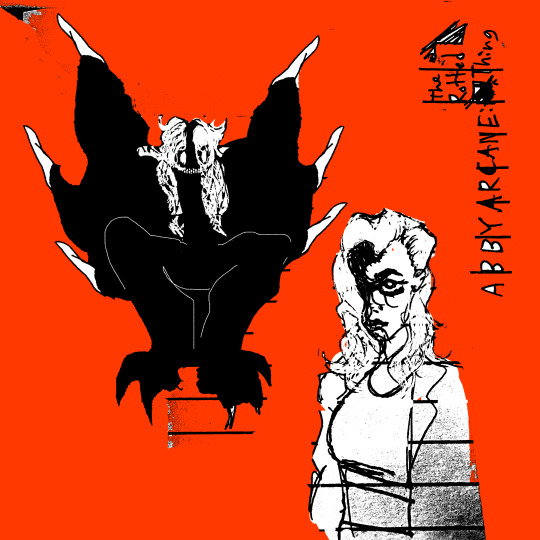
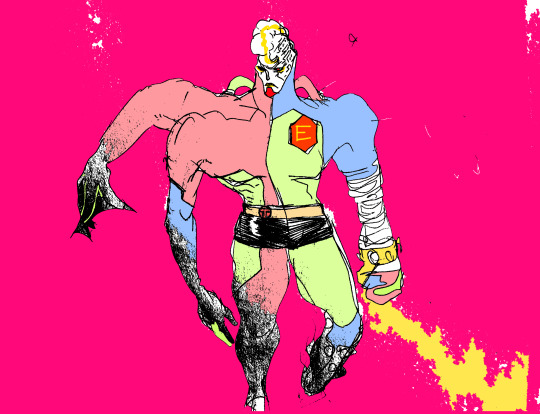
Batch Update: Giganta, Abby Arcane, and Metamorpho (again)
I actually have a bunch written up for all three, but I got caught in a web of describing everyone’s weird interpersonal relationships and it was getting real long bc all of these people’s dating lives are insane
Anyway, I backtracked on Rex again and it’s a little hard to see on the belt, but he actually is on The Terrifics still, which I’m going for more of a Future Foundation instead of strictly F4.
Abby Arcane’s Avatar of Rot is just the “Black Queen” in canon (thanks Scott) so I wanted something a little punchier and went with “The Rotted Thing” instead. I also added a bit where Abby meets Alec before his death and they have an affair while both still involved with others partners, Matt and Linda, respectively. Linda’s actually super interesting because she gets fridged (later retconned to be along with Alec, obvs) in Swamp Thing’s origin and her whole character arc takes place in the afterlife, but she also went to school with Ivy bc ofc, and...idk, any other Linda Hollands out there, she lives in this AU and more on that later. Anyway, Abby eventually gets her own Avatar form from the Parliament of Decay, which is a less always chaotic evil force and more of an actual counterpart to the other parliaments.
Finally Giganta and a peek at Hermes. I mentioned earlier this was the rough draft version, so I’m still working out aspects, but I wanted to tie Doris to both Gorilla City and Themyscira. Which is great, bc you may have noticed really like combining powersets from different versions of the same character, you should see what I did to Piotr Rasputin in my Marvel AU, and I feel like Doris (Zuel being a mononym when she was a Gorilla City researcher and Doris being her chosen human name) is smart enough to both switch species and then discover size-changing. Also she’s specifically an Amazon instead of just a super-strong human, so she’s got a lot of the mystical capabilities of Amazons that get glossed over in favor of action scenes of vaguely Greco-Roman statuesque babes (thanks Zack).
Hermes is just the to complete the femcel!Knuckles joke by being her Sonic until I pick a better counterpart (maybe Jesse Quick?)
#dc#headverse#fanart#metamorpho#element man#rex mason#abby arcane#abigail arcane#the rot#parliament of decay#giganta#doris zuel
27 notes
·
View notes
Text
Retellings Ranked: Cinderella
As a huge fairytale fan, I read a lot of retellings, and Cinderella is a classic. Here are my thoughts on those retellings! (Please don’t come after me for rating your favorite retelling badly, reading is subjective, etc. Post periodically updated.)
A Good Time!
Ella Enchanted by Gail Carson Levine- We all love the movie, and the book is excellent too! Meant for a slightly younger audience, if I remember correctly, but carries a lot of the same themes as the movie, though I can’t remember exactly how close the plot follows.
Mechanica by Betsy Cornwell- Steampunk-esque, inventor Cinderella! A move away from the focus on romance! Some social justice metaphors that are possibly more dicey than I remember but worked pretty well as far as my memory extends. Slow-paced, and does actually do some new things with the story.
Stepsister by Jennifer Donnelly- Possibly the most interesting take on the stepsisters that I’ve seen, without villainizing Cinderella (if I remember correctly), which was neat. Wide variety of female characters so there’s not one box they’re put into, which is a good time.
Pros/Cons
Ash by Malinda Lo- WLW Cinderella! Love to see it! And reasonably well done. My biggest problem with this one was that it felt like it could’ve been a lot more fleshed out in almost every aspect (characters, world, plot). But it was still a good read, very classic, had good themes and messages about love and grief.
Cinder by Marissa Meyer- First in a series, of which I actually preferred some of the later books. Cybernetic Cinderella, which is very cool, and blends fairytales with sci-fi in extremely neat ways. Does not do a great job with diversity, but does sort-of try.
Cinderella is Dead by Kalynn Bayron- Another sapphic Cinderella! Love the take on fairytales (and stories more generally) as propaganda, and a good variety of complex female characters! A bit heavy-handed on the anti-patriarchy messaging, but sometimes, you gotta be.
I Don’t Remember Anything, But I Gave it 3/5 Stars
Before Midnight by Cameron Dokey- Arguably belongs in the category above because I actually rated it 4/5 stars but I truly remember nothing. I enjoyed it I guess.
...Pass
The Ugly Stepsister by Ava Ling- Honestly I don’t remember much about this, but I only rated it 2 stars. Pretty sure the characterization was flat and the concept kinda cheesy, which can work, but didn’t here.
Sinful Cinderella by Anita Valle- This is largely on me because I knew I wouldn’t like this and I definitely only read it because it was free on iBooks and I didn’t have access to any new physical books while I was abroad. Anyway, Cinderella is edgy and Bad I guess. So is this novella.
The Captive Maiden by Melanie Dickerson- Cinderella but with Christian heavy themes. In this category partly for being kinda heavy-handed with the “God is the answer” moral but honestly mostly for doing pretty much nothing new with the story.
The Stepsister’s Tale by Tracy Barrett- Barrett shows up with some frequency on my retellings list and never seems to make it very high. Sorry, ma’am, I think your style just might not vibe with me. I remember this mostly being boring. And pushing the role reversal a little too hard. (Though we do love to see eventual female solidarity.)
Confessions of an Ugly Stepsister by Gregory Maguire- I do really like the idea of putting fairytales into real historical settings and 17th century Holland is a cool and unusual place to do it. But I wasn’t comfortable with the way mental illness was handled and honestly none of the characters were that interesting :(
Want to see more of my thoughts? Check out Retellings Ranked: Greco-Roman Mythology, Snow White, Beauty and the Beast, Sleeping Beauty, Classic Literature
33 notes
·
View notes
Text
Jan Janszoon also known as Murat Reis the Younger (c. 1570-c. 1641) Dutch Barbary Pirate and founder/leader of a pirate republic, Republic of Sale...
Mention pirates and you may well conjure a number of images in the mind. It depends on the context you’re discussing in terms of history and placement in the world. The western world usually has an image of a swashbuckling and misunderstood rogue or misfit outcast who has been rejected from their society or can’t tolerate authority so they take to a life on the high seas in search of freedom, adventure and plunder. Edward Teach (1680-1718) better known as Blackbeard is sometimes cited as the archetypal pirate in many modern works of fiction. Or one might picture the character of Jack Sparrow in the Pirates of the Caribbean film franchise. Images that are based in elements of truth but probably watered down from the reality of the harsh existence pirates found themselves in and the harsh price they exacted from others.
Another type of pirate, widely talked about but not perhaps as well known in some parts of the world is that of the Barbary pirate or Barbary corsair. The Barbary pirate were privateers or pirates from an Islamic background typically and sometimes used a nominally religiously infused perspective to ply their trade. They usually hailed from or were based out of the so called Barbary Coast of North Africa, so named for the native Berber peoples who made up the majority of these lands, Berber being a corruption of the ancient Greek for Barbarian a term applied to all non Greco-Roman peoples in antiquity. These lands were the modern nations of Morocco, Algeria, Tunisia & Libya in particular. These pirates were largely in operation from the 16th-19th centuries with their zenith being in the early to mid 17th century. The modern states of North Africa were not full fledged nation states as they are today, in fact they were instead made up of various city states that with the exception of Morocco were nominal parts of the Turkish Ottoman Empire. These locations while part of the Ottoman sphere of influence had relative degrees of autonomy that fell to their local governors called dey or bey or pasha. All honorific titles taken from Turkish to roughly mean leader or governor. The pirates on behalf of their dey or pasha or sometimes on behalf of themselves had virtual control of over their city-states and the surrounding seas.
The most prominent grounds to find these pirates and their bases was the Western Mediterranean and Atlantic seaboard of Western Europe. Their primary focus was to engage in the plunder of merchant ships and occasionally raid coastal villages and towns. The main target wasn’t so much goods like money or inanimate objects but rather in the capture of people, mostly Europeans and later Americans to become part of the greater Islamic slave trade within the preexisting Ottoman and Arab slave trades which spanned from Asia to Africa and Europe. Now keep in mind slavery was not exclusive to any one society, culture or location, slavery and human trafficking was commonplace on virtually all continents among all peoples during the 16th-19th centuries. However, the focus of this post will be on the Barbary slave trade and to provide a snapshot of the practices within that context.
Not all Barbary pirates were born within the Islamic world, in fact some of the best known were originally Christian or Jewish and later converted to Islam. One of the best known was a Dutchman named Jan Janszoon (Jan Jansen) who took on the later moniker of Murat Reis the Younger...
Early Life...
-Not much of Jan’s early life is documented, other than he was born in the city of Haarlem in the Netherlands in roughly the year 1570. Sources don’t definitively state who his parents were other than we can determine his surname followed the Dutch patronymic naming system of Janszoon or Jansen meaning “son of Jan or son of John” in English.
-At the time of Jan’s birth, the Netherlands was technically part of the Catholic Spanish Empire. However, the ethnic Dutch who were primarily Protestants of the Calvinist Dutch Reformed Church were increasingly at odds with Spanish rule, what resulted was the Eighty Years War or War of Dutch Independence (1568-1648). Seven northern provinces of the Netherlands, one of the most powerful being Holland formed the united nucleus of new country determined to breakaway from Spanish rule. This became the Dutch Republic. What followed was a period of off and on warfare, colonial expansion and a flowering of cultural expression in art, commerce and the establishment of relatively tolerant values based in individualism. This was reflected in the largely Protestant personalized philosophy of their religion. The Dutch Republic became a place of comparative religious freedom within Europe and its government was run more by a legislative body than a monarch, though it had monarch like figures with varying degrees of power, more symbolic than absolute. This contrasted with the absolute monarchy and centralizing of power in most of 17th-18th century Europe.
-Jan’s profession wasn’t known either, other than at some point he took to a life at sea, it is speculated by some sources that he was apprenticed on merchant ships as a teenager which enabled him to learn the skills of sailing and nuances of trade and diplomacy in all dealings that would later serve him in life.
-In 1595, Jan is recorded as marrying a woman, presumably named Soutgen Cave with whom he had at least one daughter and possibly a son, Edward The daughter, Lysbeth, was definitively confirmed by virtually all sources and would play a role in her father’s later life.
-Jan would eventually abandon his family in the Netherlands and would never return to them in a long lasting fashion. Jan appears to have been restless and turned to a life at sea, first as a Dutch privateer on behalf of the Dutch Republic, raiding Spanish merchant ships in an effort to hurt the economy of the nation that nominally ruled over the Dutch Republic.
-However, in the early 17th century a nominal period of peace or truce was established between Spain and the Netherlands, though the war and issue of independence wasn’t officially resolved. Jan during these years appears to have left the official capacity of serving under the Dutch flag and instead made his way to Spain and North Africa and largely went into business for himself.
Algiers and Spain “Turning Turk”...
-The timeline is somewhat confused based on the sources we have but Jan’s adventures appear to have taken him to the Canary Islands off Africa’s coast where he was captured by Barbary pirates, possibly under the Ottoman privateer of Albanian extraction, Murat Reis (The Elder). Jan was conveyed to Algiers (modern capital of Algeria) where he was most likely considered for a life of slavery. However, it appear Jan either made the conversion to Islam outright to officially spare him the pain of slavery, since nominally Islam forbids the enslavement of other Muslims, though this was not always practiced since other Muslims were occasionally enslaved by the Barbary pirates. The other possibility is that Jan convinced his captors of his suitability as a sailor and guide and offered his services if not his faith, though it most likely he converted to Islam at this time, probably as a practical matter. The conversion in European circles was known as “turning Turk” since Turk became a blanket misnomer to all Muslims regardless of ethnicity at this time.
-Jan also made his was to Spain, in particular the port city of Cartagena where in the first decade of the 17th century, some of the last sizable remnants of a Muslim community lived, descended from Muslims that once controlled most of the Iberian Peninsula in the semi-autonomous province of Al-Andalus (Andalusia) from the 8th century to the year 1492.
-Since 1492, the Christian kingdoms of northern Spain and Portugal pushed backed the Muslims and “reconquered” Iberia from Muslim rule. The Spanish monarchy overtime changed from relative tolerance of Muslims and Jews to threats of expulsion, forced conversion or death for non-Christians. In the midst of all this Jan, either not yet a Muslim or a Muslim who as a European could pass for a Christian met a new woman, sources can’t confirm her identity beyond the Spanish name Margarita. Margarita was known to be a Spanish Moor or Muslim of mixed ethnic background, most likely Arab-Berber with roots in Morocco. She was part of a community known as Mujedars or Moriscos, Moors who nominally were converted Christianity but in private secretly maintained their Islamic faith and customs. Sources also vary on whether Margarita was a woman of high birth or nobility or a domestic servant to a Christian family. There is even a source that speculates her genealogy can be traced in part to the then ruling dynasty of Morocco, the Arab Saadi dynasty which claim descent from the Islamic prophet Muhammad through the Prophet’s daughter Fatima.
-What is known is that Margarita would become Jan’s wife, the first of four permissible simultaneous wives under Islamic law. It is not known if Jan ever took another wife. His first Christian marriage in the Netherlands would be viewed as invalid under from the Islamic viewpoint. Jan and Margarita also had four sons whose names are Abraham, Anthony, Philip & Cornelis. All four would have been raised as Muslims by their parents, from this point on this became Jan’s family. His Dutch family is variously reported to have been ignored or still the recipients of child/spousal support from Jan who would send portions of his earnings to them. There is evidently truth to this given that his daughter Lysbeth later visited him late in life, suggesting a good enough relationship if distant.
Sale...
-In roughly the period 1609-1612 the family would have left Spain for Algiers and later Morocco and settled in the city of Sale, today a twin city of the capital of Rabat. Sale had a long history but a number of thousands of expelled Muslims from Spain would come together to form the nucleus of a new period of history in Sale. These Muslims would have differed from the Berbers of Morocco despite their overlapping ethnic similarities, in that they grew up speaking Spanish probably in addition to Arabic and would have had Spanish influenced customs, this put them at odds with their fellow Moroccans.
-Jan in his travels would have been multilingual. In addition to his native Dutch he would have known Spanish and likely Arabic, English and possibly French at the very least.
-1619 saw the city of Sale which had a small Barbary pirate operation already declare itself an independent republic, not subject to the authority of the Sultans of Morocco, then ruled by two brothers of the Saadi dynasty in a virtual state of civil war At the center of this “revolt” was Jan himself, now known as Murat Reis (The Younger), taken after his former captor who had passed away a decade before. Jan was already successful in conducting raids for Algiers on European shipping, mostly of Spanish shipping and other nations. Though he was known to release or ransom his fellow Dutch from captivity in many instances.
-Sale in its newly declared independence was helmed by a ruling council of 14 leading pirates who elected Jan at its Grand Admiral (head of the fleet) and President. The newly minted Republic of Sale, was a functioning de-facto city-state that was run by and for Barbary pirates who enriched themselves off of the slave trade and sale of plunder of other goods taken from European ships.
-Sale’s fleet was small at first, numbering 18 ships, mainly of the “polacca” design, the ships were small, sleek and fast. The harbor at Sale was the mouth of the Bou Regreg river which divided Sale & Rabat on the north and south banks respectively. The harbor was protected by a sandbar and due to the small design of the ships with they had the ability to slide over the sandbar and dock in the shallow harbor, where European ships typically required deep ports for docking due to their deep and large hulls. Sale at the time also benefitted from relative isolation with next to no roads leading to the city from land and it was purely a port city.
-Jan is noted by all sources as an intelligent and brave fighter as well as able administrator, the docking fees, percentages of profits from slave sales and others good sold made Sale blossom financially under Jan’s administration. Nominal fees to the Sultan also helped maintain their semi-autonomy, in recognition of this and due to other deeper difficulties Sultan Zidan Abu Maali of the Saadi dynasty made Jan the ceremonial Governor of Sale.
-Jan and the Sale Rovers as his fleet was called in English sources was known for their guile. Carrying multiple flags on board Jan and fleet were known to approach ships and like a chameleon adapts to their surroundings by changing colors, the pirates would fly friendly flags as they approached their prey. This meant they kept informed on the latest diplomatic changes of the day and using this ruse got close to their quarry and then suddenly would raise their own flag of the two conjoined sabers on a field of green or the crescent moon of Islam and frighten their victims. Barbary pirates in general speaking foreign tongues with a fearsome appearance of swords and pistols in hand and dagger in mouth relied on intimidation and very often tried to capture their victims without an actual fight. Since the goal was enslavement harm or death to their prisoners was not ideal and psychological terror was their foremost weapon hence why they chose merchant and passenger ships and usually fled at the sight of military ships.
-According to the known accounts Jan and his men treated their prisoners relatively humanely given the circumstances as Barbary piracy was well known by this time, most knew their fate would not be good, few slaves ever returned to their homeland or another destination. Typically, women and children would be separated from the men, meaning families were often divided. Once arrived at port, they would be separated according to age and gender since they served different purposes. Men would typically be used for forced manual labor to their Muslim masters or serve as oarsmen or servants on ships, rarely setting foot on land for long periods of time. Children would be taken to serve as domestic servants in Muslim homes and women would typically be sold to become domestic servants as well. Occasionally women were made into sex slaves to their masters, sometimes ending up in the harems of the Sultan or other Muslim rulers. On the auction block as is true of slaves anywhere, one would be publicly displayed sometimes naked or asked to run and jump or to be prodded and inspected by prospective buyers. Those in good health commanded the highest price. Some slaves were also ransomed through funds raised by the family, government or Christian religious orders, though this fueled the Barbary pirates economy and perpetuated the cycle of enslavement. Jan is known to have made large profits to fund his family, fleet and home and is known to have had many servants, most probably being men to perform manual labor in maintaining his fleet for future slave runs.
-Jan also occasionally ventured outside of the Western Mediterranean and Atlantic near the Canary Islands, sight of his own capture years before. He was known to base himself on islands off the coast of England and even return to the Netherlands. Using his Dutch citizenship and his new found role as an Admiral nominally in the Moroccan navy, he had diplomatic immunity and for his service in attacking the hated Spanish, he was viewed with mixed feeling in his homeland as his fame had spread by this time. The authorities banned piracy officially and condemned it and thought him a bad example, even if he exacted a toll on the Spanish economy which rivalled the Dutch and was still at war with them. During one visit back to Amsterdam in 1622, the authorities located his first wife and their children in the hopes the sight of them would spurn him to give up his piracy, it failed. To make matters worse, he had somewhat a folk hero appeal that lead several Dutchmen to actually leave behind their lives in Amsterdam and leave to join his crew for a life of piracy, a testament to the charisma he probably possessed. His crew would have been multiethnic containing other Europeans including Dutch, Spanish, French, English and German crewmen alongside Arabs, Berbers and Turks. Spanish & Arabic would have probably served as lingua francas onboard.
Return to Algiers...
-By 1627, the political situation in Morocco had deteriorated and for safety reasons he took his family to Algiers. His son Anthony had by this time now an adult left Morocco for a life in the Netherlands and would eventually marry a Dutch woman and immigrate under the auspices of the Dutch West India Company to North America, settling in the colony of New Amsterdam, modern day New York City. Anthony was known as Anthony Janszoon Van Salee in Dutch. He was the first Muslim recorded to have been a long term settler in North America and kept the first known copy of a the Qu’ran in America as well, reputed to be a copy of the Moroccan Sultan’s personal Qu’ran which was a gift and a testament to the honorifics bestowed upon the Janszoon family. Anthony became a successful farmer, landowner and merchant in New Amsterdam and helped found settlements that made up modern day Brooklyn, New York. He was known to have an independent streak like his father and little regard for authority, making him a colorful character in colonial America. Through Anthony, Jan has many living descendants in America (see my previous post on Anthony) including the Vanderbilt family which became wealthy in the 19th century.
-Upon his return to Algiers, Jan resumed his piracy this time conducting two of his most famous raids in 1627 and 1631 respectively. First, he had his crew leave from England northward to Iceland of all places, where they captured a couple hundred Icelanders and a few Danes from Denmark, all were sold into slavery in Algiers where Jan continued his large profits. The second took place in Ireland at the village of Baltimore, once more he successfully made off with hundreds of prisoners, only two would ever return to Ireland. This latter raid was lamented in the 19th century Thomas Davis poem The Sack of Baltimore. In both instances, Jan’s crew went ashore and captured villagers from their homes, again using intimidation with probably only enough physical violence so as to intimidate and deter resistance. In the case of the Baltimore raid, Jan’s crew attacked in the middle of the night abducting people from their sleep.
Capture...
-1635 saw Jan captured while at sea in the Eastern Mediterranean, captured by the Christian military order, the Knights of Rhodes or Knights Hospitaller. He was kept on the island of Malta, the details of his confinement are murky, but he was known to have been beaten and subjected to torture though he never renounced Islam and was known to have become quite pious in his faith. He encouraged many European captives to convert and spare themselves slavery as Islam forbids enslavement of other Muslims. In fact, the Muslim view of Jan and his fellow Barbary pirates at the time was widely one of celebration and righteousness. Not only did it provide economic benefit but the enslavement of non-Muslims was viewed as an act of almost holy war waged against infidel peoples and the pirates were warriors of Islam acting in a righteous manner.
-Jan’s imprisonment lasted five years until he was freed by Tunisian Barbary pirates in a raid on Malta. He was heralded with great pomp in 1640 at his release having achieved fame in the Islamic world as well as have been a scourge to Christians in Europe.
Final return to Morocco...
-Jan was essentially in search of work despite his old age and feeble condition from his imprisonment.
-He returned to Morocco but not Sale where he made his name and fortune but instead, the new Sultan made him Governor of Oualidia further south on the Moroccan coast. The modern day seaside resort had a unique lagoon and a new fortress or “Kasbah” was built specifically for Jan. He also maintained a home in nearby Safi, no longer at sea, he retired and merely administered the area but appears to have been restored to his wealth, his wife Margarita is presumed to have predeceased him either in Algiers or Morocco before or during his imprisonment on Malta.
-In 1641 his daughter Lysbeth from his first marriage travelled with a Dutch embassy to Morocco to greet the new Sultan. Lysbeth and her husband met with Jan, supposedly both on their docked ship and and his many homes, he was described as being enfeebled but surrounded by luxury and comfort attended to by servants. Lysbeth stayed with her father for months, the only extended period of time since her childhood, presumably this meant despite his physical distance, their relationship was relatively good.
-No further sources of Jan’s life are known, its presumed he died shortly thereafter of natural causes and was buried in Safi, Morocco in an unmarked grave but no source has yet validated this.


#jan janszoon#barbary pirates#16th century#17th century#pirates#piracy#slave trade#islamic history#military history#morocco#arab world#berbers#moors#dutch republic#spain#al andalus#salee#rabat#algiers#malta#murat reis
22 notes
·
View notes
Video
youtube
Nu Disco | Funk LeBlanc - Real Love (ft. Holland Greco)
1 note
·
View note
